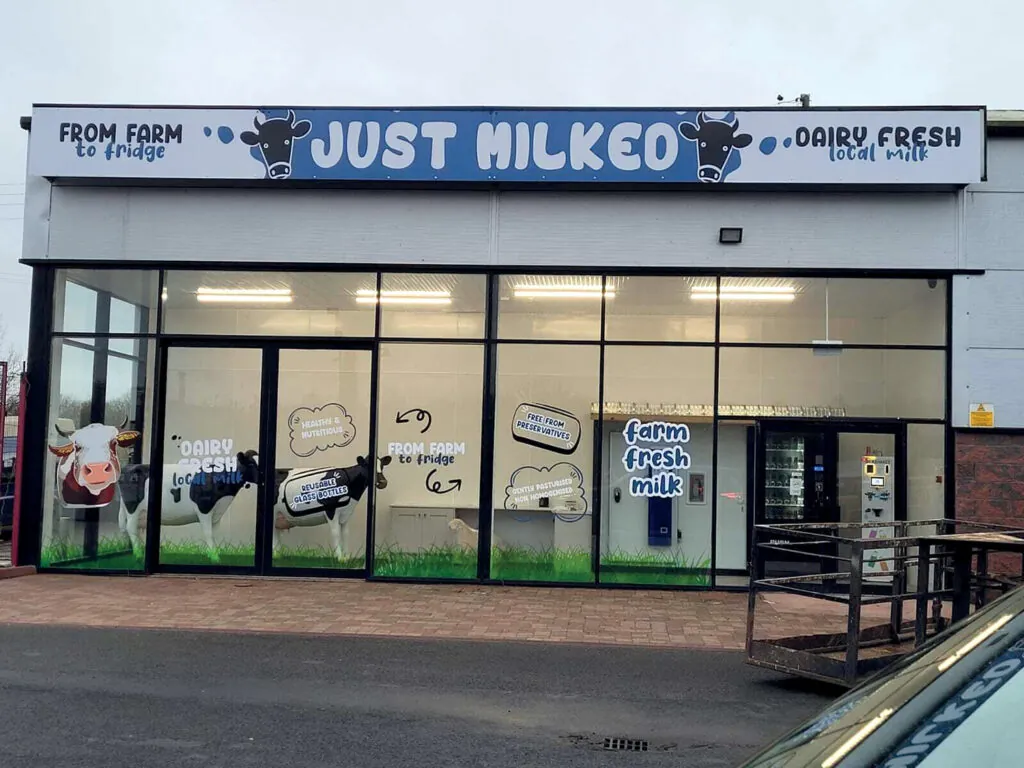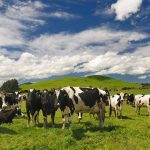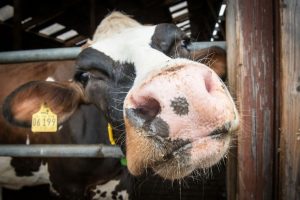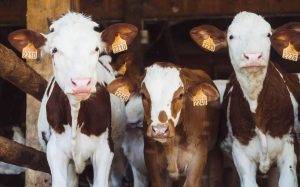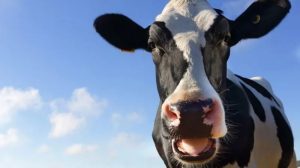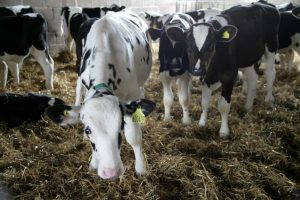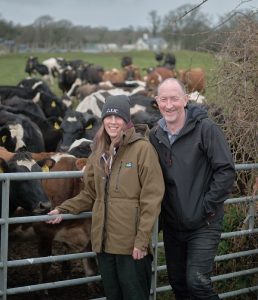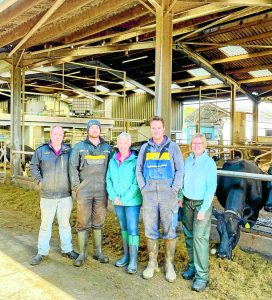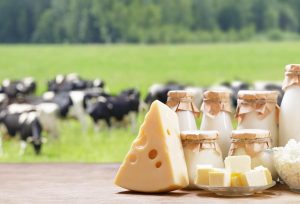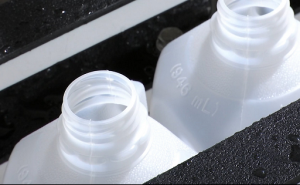
Dairy farmer Stephen Carson recently installed the UK’s first batch milking system, with milk being pasteurised and bottled on site before being sold through vending machines. Allowing him to keep the profits through the supply chain, the project was funded by a combination of government grants and specialist agri finance.
Stephen’s milking system has 18 robots to speed up productivity, save labour and improve yields, as his 600 Jersey cross British Friesians enter the stalls when they please. The milk is then gently pasteurised, bottled and sold at one of his four vending machines in local shopping areas under its brand name JustMilked. It’s sustainable, convenient and Stephen has kept the profit right through the supply chain.
Stephen funded the state-of-the-art parlour by combining government grants and specialist agri asset finance.
“Stephen’s farm is a brilliant example of someone having an idea and finding the perfect way to make it reality,” says Matthew Smart, CEO of Rural Asset Finance, which funded the project. “These projects do need specialist financial support and most lenders can’t structure multiple finance products in parallel to cater for the diverse revenue streams in modern farming.
“For a start, the legacy HP, lease, loan and mortgage debt needs to be analysed. We consolidated Stephen’s existing finance to a new long-term loan at a cheaper rate which more than halved his monthly repayments. This freed up his machinery fleet from finance, enabling him to change and sell machines easily to complement his changing business model.
“The new parlour was funded with fixed-rate lease finance over 10 years and a new loan for the shed to house it. Loan funds paid the invoices and Stephen used grants to retrospectively repay some of the initial loan and provide solid working capital buffers to counter high input costs. A further grant, with HP finance, bought the pasteurising equipment and the vending machines, with no cash outlay from the farm bank account.”
Government grants including the Farming Investment Fund, the Farming Equipment and Technology Fund and the Farming Transformation Fund can provide up to £500,000 towards equipment or building projects. And with the right finance partner farmers could, like Stephen, use that money as a foundation to access borrowing that transforms their farms, and their revenue.
Now is the time to take advantage of government support. Matthew explains: “Many farms are seeing benefits processing food products and retailing them directly, which keeps more of the supply chain profit on the farm. Whether it’s turning potatoes into crisps, or washing and packaging your products before sale, that’s adding value and can be done with automation.
“Yes, it’s significant investment in such things as packhouses, parlours and processing plants, but grants complemented with the right credit agreements are making this more achievable than ever. Obviously, the whole farm’s finances need to be reviewed – modern farm revenue generation is changing so dramatically that historic debts now need structuring differently to ensure they remain manageable.
“We’ve helped so many farmers expand their business in this way and with the grants continuing into next year we’re ready, willing, able and happy to help many more.”
